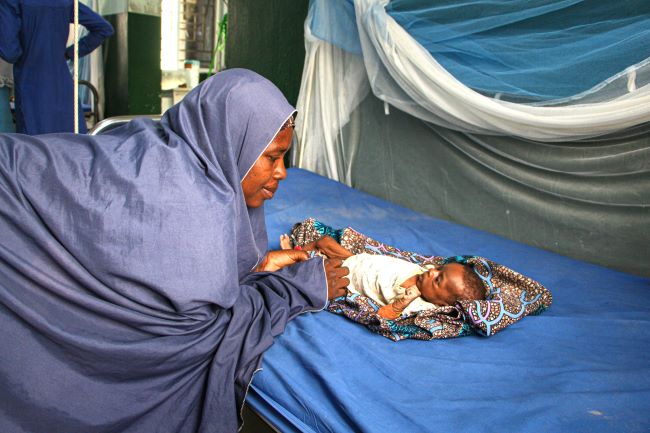A mother in Ganjuwa Local Government Area of Bauchi State surprised health workers when she said she had refused to give her severely malnourished child an egg. She explained that she believed eggs could cause jaundice or yellow fever.
Her statement came during a visit by UNICEF Nigeria’s Country Representative, Wafaa Saeed, who was in Ganjuwa to promote community efforts aimed at improving child health and welfare.
The woman, whose child is being treated for Severe Acute Malnutrition (SAM) at a local centre, insisted that eggs were harmful to children. Her view reflects a common misconception still held in some rural communities.
Dr. David Audu, UNICEF Health Specialist, told journalists that Saeed was shocked by the mother’s words. He said the UNICEF representative immediately began counselling the woman about the nutritional benefits of eggs for children.
“This was a big surprise for the new Country Representative,” Audu said. “She is new to the community and to our country, and such encounters show how deep-rooted ignorance can harm children’s nutrition.”
Also speaking, Nuzhat Rafique, UNICEF Chief of Field Office in Bauchi, said the visit was useful because it brought important issues to light and encouraged strong commitments from the Bauchi State government.
“She encouraged the government to find local solutions,” Rafique explained. “The governor showed interest in addressing behavior change and preventing malnutrition in children.”
Rafique stressed that it is better to prevent malnutrition from the beginning rather than only treating it. She said children should be cared for properly from pregnancy up to two years of age, as poor nutrition affects both physical and mental growth.
She added that no child should have to suffer malnutrition at all, and real progress will only happen if local governments, traditional rulers, religious leaders, and community groups are all involved. According to her, Wafaa Saeed was impressed by the strong community commitment she witnessed during the visit.
UNICEF Nutrition Specialist, Philemon Irene, praised the Bauchi State government for releasing ₦300 million as counterpart funding to fight malnutrition.
She noted that Bauchi has one of the worst nutrition statistics in Nigeria, with a stunting rate above 50 percent. This, she warned, is very dangerous for the future of children.
“The situation is still bad, with very high child mortality,” Irene said. “But we are encouraged that the release of funds and community-led programmes like ‘Fathers for Good Health’ and ‘Mama2Mama’ are helping mothers bring their malnourished children to health facilities for care.”


